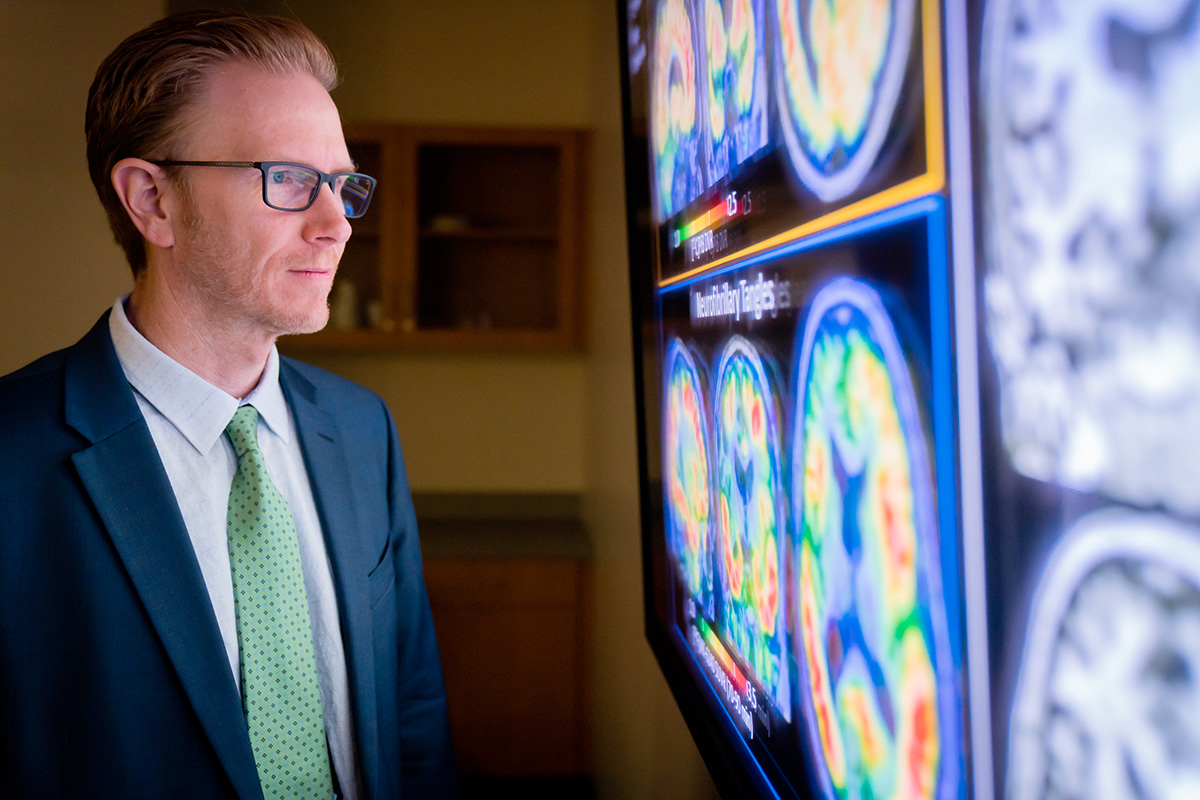A Milestone in Alzheimer’s Research
With a $150 million grant, UW researchers will study the causes of dementia.

Johnson: “We can shed light on the complex interplay of multiple pathologies contributing to dementia.” Clint Thayer/UW Department of Medicine
The UW School of Medicine and Public Health has received the largest National Institutes of Health grant in the university’s history to lead a national Alzheimer’s disease study.
The grant, with anticipated funding totaling up to $150 million, will fund a five-year initiative that involves all 37 Alzheimer’s Disease Research Centers in the United States, establishing a standardized brain imaging and blood plasma test protocol. There is more than one kind of dementia, and patients can have more than one at the same time, known as “mixed dementia.” The project will help physicians determine which type a patient has so they can provide better treatment.
Researchers are beginning to understand that mixed dementia occurs more frequently than previously realized and can cause multiple changes in the brain. For example, individuals can be initially diagnosed with and treated for Alzheimer’s disease, but their brains may also show signs of vascular dementia or Lewy body dementia.
Without knowing the true cause of patients’ dementia, physicians can’t properly treat them, says Sterling Johnson, study leader and professor of medicine at the School of Medicine and Public Health.
“This study represents a significant milestone in Alzheimer’s research,” he says. “We can shed light on the complex interplay of multiple pathologies contributing to dementia, ultimately advancing our understanding and treatment” of the condition.
The research team aims to recruit at least a quarter of participants from historically underrepresented communities.
“Health disparities are associated with a broad, complex, and interrelated array of factors,” Johnson says, “and it is vital we ensure our findings are applicable to all individuals affected by these devastating conditions.”
Published in the Summer 2024 issue



Comments
No comments posted yet.